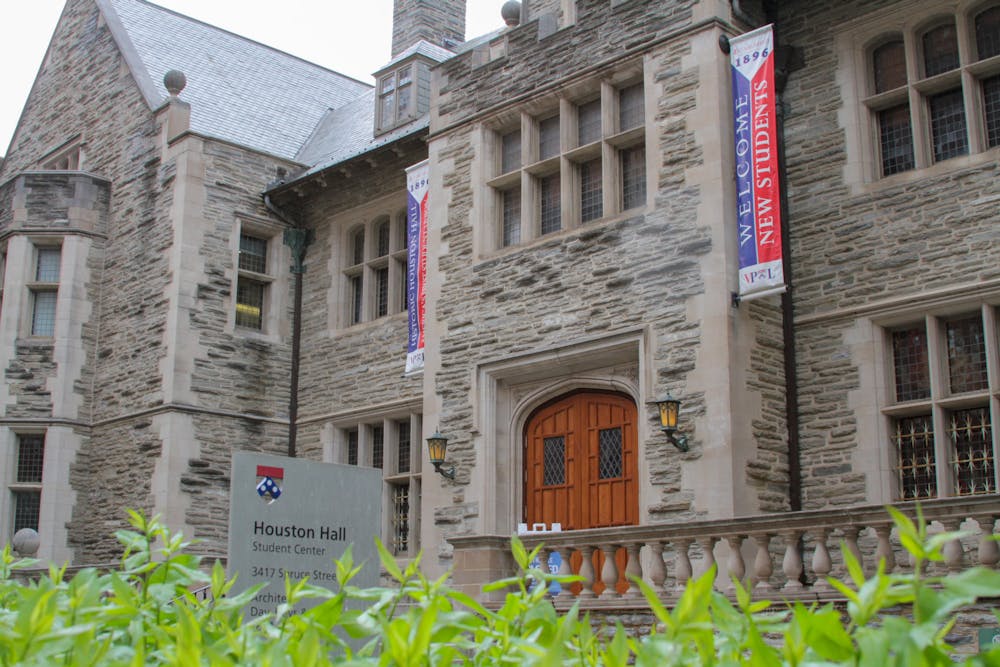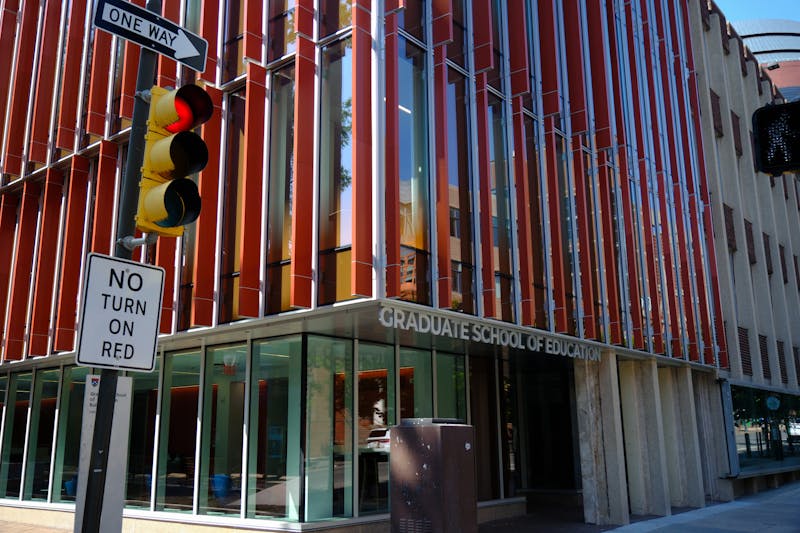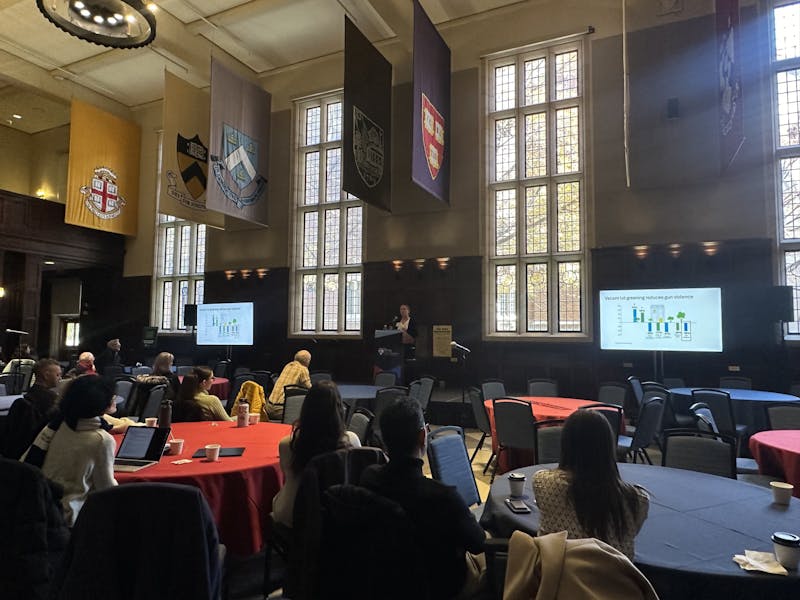
Penn’s Student Committee on Undergraduate Education officially released its 2025 white paper at a launch event on Feb. 10.
The event, which took place at Houston Hall, celebrated the work of SCUE members and acknowledged the contributions of various advisors and partner organizations in the creation of the white paper, which is released every five years. A status update to the inaugural Sarah Katz Award — given to a student pursuing a project in heart health literacy — was also presented at the event.
In her introductory remarks, College senior and outgoing SCUE Chair External Michelle Wen outlined the process of creating the white paper, which she described as “two years of iteration, analysis, countless stakeholder meetings, school-wide surveys, and focus groups.” Wen also discussed the importance of SCUE’s work to the broader Penn community.
Penn's Executive Director of Student Affairs Katie Bonner emphasized the importance of collaboration between students and administration amid challenges to universities and the higher education system.
The 2025 White Paper is structured around five major topics: Academics; Diversity, Equity, Inclusion; One University; Wellness; and West Philadelphia and Beyond. These topics were identified through survey data collected from Penn students over the course of multiple semesters. An additional sixth section on Open Expression was also added amidst community concerns surrounding free speech on Penn’s campus.
College senior and former staffer of The Daily Pennsylvanian Sophia Leung — who served as one of the co-executive editors of the white paper — broke down the structure of the report, explaining the function of each section: Problems, Solutions, and Implementation.
“All of our numbers and focus group quotes are in [the Problems section],” Leung said. “That is where you're going to find all of the data that we’ve backed up our recommendations with. Solutions lays out some of our broader goals based on what students were saying, what we feel like they really need in terms of changes. And Implementation is where we were trying to brainstorm specific campus organizations, departments, administrative stakeholders that we could work with to actually make these changes happen.”
College junior and former DP staffer Max Annunziata, who served as co-executive editor with Leung — emphasized that SCUE’s intention in publishing the white paper was to promote meaningful change through discussion of the paper’s recommendations.
“Our recommendations don’t intend to call anybody out,” he explained. “They’re opportunities for dialogue and for moving forward with processes of ideation.”
Following the discussion, College and Wharton senior Aravind Krishnan spoke. Krishnan was presented with the inaugural Sarah Katz Award for his work with Shelter Health Outreach Program's Hypertension Education and Response Outreach Project in the fall. The award was established to honor Sarah Katz, a SCUE member who passed away in Sept. 2022 as a College junior. The award offers funding to students pursuing projects that promote a project in heart health literacy.
“We named it ‘Project HERO’ as a way to honor Sarah’s legacy as a true hero for heart health on campus,” Krishnan said. “Someone that all of us should aspire to be.”
The Daily Pennsylvanian is an independent, student-run newspaper. Please consider making a donation to support the coverage that shapes the University. Your generosity ensures a future of strong journalism at Penn.
Donate












